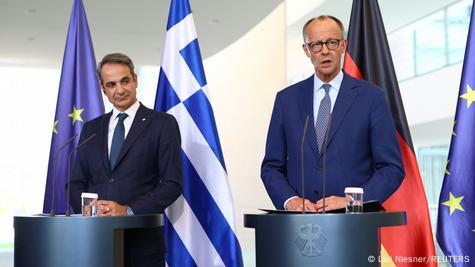Rising Discord Between Germany and Greece Over Refugee Policy Challenges
The relationship between Germany and Greece has become increasingly strained due to conflicting approaches toward managing the refugee influx into Europe. While Germany champions a humanitarian, inclusive strategy that calls for equitable distribution of asylum seekers across EU member states, Greece finds itself overwhelmed by the sheer volume of arrivals and limited infrastructure. Athens insists on enhanced financial support and more stringent border enforcement from its European partners. These opposing priorities have sparked diplomatic tensions, with each side accusing the other of neglecting shared European principles and responsibilities.
Core Disputes in Refugee Management
- Allocation mechanisms for asylum seekers within EU countries
- Financial contributions toward refugee housing and welfare programs
- Coordination of border security operations among member states
- Treatment protocols for undocumented migrants including deportation policies
| Issue Area | Germany’s Perspective | Greece’s Viewpoint |
|---|---|---|
| Refugee Distribution Policies | Advocates binding EU-wide quotas to share responsibility evenly. | Pursues a flexible system tailored to national capacities and urgent needs. |
| Funding Support | Pushing for increased solidarity funds within the EU budget framework. | Calls for immediate emergency financial assistance to address critical shortages. |
| Border Enforcement Strategies | Supports collaborative EU measures enhancing joint patrols and surveillance. | Begs for reinforced national control with stricter external border monitoring. |
The Ripple Effects on German-Greek Relations and European Unity Amid Migration Pressures
The divergent refugee policies have deepened rifts not only between Berlin and Athens but also threaten broader cohesion within the European Union. Germany’s emphasis on expedited asylum processing contrasts sharply with Greece’s demand for bolstered external border defenses coupled with substantial financial aid. This discord hampers coordinated policymaking efforts while fueling public debates about equitable burden-sharing among member states during one of Europe’s most significant migration waves in recent history-over two million arrivals recorded since early 2023 alone according to Frontex data.
Main Areas Fueling Disagreement:
- Divergent Border Security Approaches: Greece advocates a unified external frontier policy; meanwhile, Germany prioritizes internal security measures tailored by individual nations’ discretion. Â
- Inequitable Resource Distribution: The uneven allocation of funding, personnel, and infrastructure investment exacerbates mistrust between frontline countries like Greece versus wealthier Western members such as Germany.< / li >
 - Lack of Harmonized Asylum Procedures: Fragmented regulations across borders complicate efforts toward establishing an integrated European migration framework capable of responding swiftly yet humanely.< / li >
 < / ul >Topic< / th > Germany’s Approach< / th > Greece’s Approach< / th >
< tbody >< td >Border Management< / td >< td >Accelerated processing systems aimed at reducing backlog.< / td >< td >Enhanced patrols along maritime borders emphasizing deterrence.< / td > < td >Financial Assistance< / td >< td >Conditional aid linked to structural reforms in recipient countries.< / td >< td >Demanding immediate disbursement without preconditions due to urgent humanitarian needs. < td >EU Solidarity Principles< / td >< td >Shared responsibility focusing on controlling migratory flows externally.
< br /> /Br/>Emphasizes full redistribution based on collective European accountability./Br/>/Tr/>
/Tbody>/Table/>
/Section/>A Path Forward: Expert Insights Advocating Collaborative Humanitarian Solutions Between Berlin And Athens/H2/>
/P>A growing chorus among policy analysts stresses that resolving German-Greek tensions requires establishing robust communication channels designed explicitly around transparency, consistency, & mutual respect./P/
/P>This dialogue would ideally take shape through regular bilateral forums involving government officials alongside NGOs & migration experts committed jointly crafting sustainable solutions addressing both immediate crises & long-term integration challenges./P/
/H3/Core Components Of Proposed Cooperative Frameworks:/H3/
- /Li/
Unified reception standards ensuring dignified treatment upon arrival./Li/
Coordinated resource deployment targeting hotspots experiencing acute pressure./Li/
Integrated data sharing platforms facilitating real-time tracking & response planning./Li/
Comprehensive psychosocial support initiatives addressing trauma experienced by refugees during displacement journeys./Li/
/Ul//P/>By merging diplomatic engagement with practical operational collaboration,/ P/>Germany & Greece could set an example demonstrating resilience amid Europe’s ongoing migrant crisis – potentially influencing broader EU policy reform efforts favorably aligned towards solidarity-based management models/P>
/Table Class=”Wp-Block-Table Is-Style-Stripes” Style=”Width:100%; Margin-Top:1.5Em;”/
/Thead/
/Tr/
/Th/Focus Area/Th/
/Th/Suggested Measures/Th/
/Th/Anticipated Benefits/Th/
/Tr/
/Thead/
/Tbody/
/Tr/
/Td/Dialogues/Td/
/Td/Frequent High-Level Consultations/Td/>
Psycho-Social Care Synchronized Health Services Initiatives Eased Mental Health Burdens Among Refugees And Host Communities Navigating Future Challenges: Conclusions On The German-Greek Migration Rift And Its Wider Implications For Europe/h2/>
The escalating disagreements over refugee management underscore pressing challenges facing both Germany and Greece as they navigate complex political landscapes shaped by unprecedented migratory pressures-Europe witnessed over four million new asylum applications in just the past year (Eurostat). How these two pivotal nations reconcile their differences will significantly influence not only their bilateral relations but also shape collective strategies adopted by the entire European Union moving forward. Stakeholders widely agree that fostering cooperation grounded in empathy, shared responsibility, and pragmatic solutions remains essential if Europe hopes to effectively manage ongoing migration dynamics while upholding human rights commitments amidst evolving geopolitical realities.




